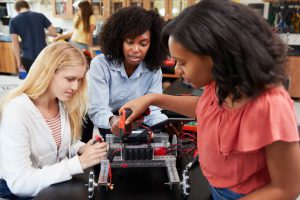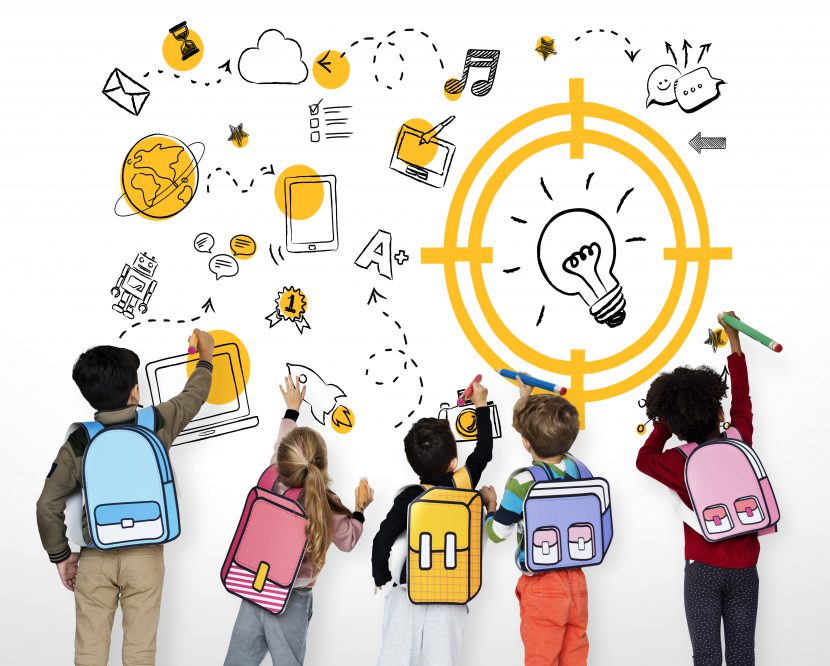Today the celebration of World Youth Skills Day helps to spotlight the importance of recognising the immeasurable value in the skills and social contribution of young people. Youth unemployment and poor access to education remain monumental barriers to opportunity, social mobility and the forging of a better more sustainable future; the making of which comprises a central pillar of Humanium’s own mission.
World Youth Skills Day in a nutshell
World Youth Skills Day, 15th July, was established by the United Nations General Assembly in their 2014 resolution 69/145 to raise awareness on the importance of investing in youth skills development (United Nations, 2019). The day, held annually, aims to address challenges of rising youth unemployment, worsening poverty levels, increasing inequality as well as access to education and training.
Global Data Snapshot (Plan International, 2019)
|
World Youth Skills Day has an important role to play, the United Nations declares, in the achievement of the 2030 Agenda for Sustainable Development (United Nations, 2019). In particular, Sustainable Development Goal 4 ‘Quality Education’ is firmly in line with Humanium’s own objectives. Promoting fair and good quality education, levelling the inequalities in access to such services between races, genders, classes and countries is work that we cherish and fully support.
Unemployment and access to education

Global youth unemployment is the most prevalent in developing countries, impacts girls and women the most, and, is on the rise (Plan International, 2019). Not only is unemployment and access to education crucially important to the lives of children and young people across the planet, but it has important repercussions on the rest of society: left unaddressed said phenomenons contribute to social exclusion, worsened inequality, social unrest and conflict as well as stunted economic growth, development and stability (Plan International, 2019). The promotion of education and training initiatives as well as fair entry-level employment opportunities is thus integral to building a fairer future.
The gender barrier in schooling and employment
Barriers to education and employment affect women and girls disproportionately, since gender norms are one of the main obstacles faced by girls and young women when they want to access education and the world of work. For example, they are more likely to engage in ‘invisible’ domestic work which is often dangerous and unregulated. More than two thirds of all child domestic workers are girls and are sorely vulnerable to exploitation and violation of their rights (Plan International, 2019). This means that working alongside families, communities, local and religious leaders as well as men and boys – whilst always centring women and girls – is essential in helping to overcome these obstacles and providing young women with the equal opportunities they deserve.
2019 as the year for promotion of children’s rights
World Youth Skills Day 2019 is especially pertinent because the Convention on the Rights of the Child’s 30th Anniversary will follow in October, only a few months’ time! Enshrined by articles 28, 29 and 32 of the Convention are children’s rights to equal opportunities in education and to protection from forced labour. Similarly the Universal Declaration of Human Rights’ articles 26 and 23 protect fundamental human rights to access education and employment (United Nations, 2015). The Convention’s upcoming anniversary alongside World Youth Skills Day both serve to highlight the legal and moral duty the international community has to see children’s rights fulfilled; an objective which just so happens to be Humanium’s core mission.
Going to the heart of Humanium’s values
Providing quality education is crucial, but flawed if we do not ensure a ripe labour market to welcome budding workers. Education, training and employment initiatives must be wary to not patronise and impose the vision of disconnected global enterprise onto the lives of others, but rather to involve children and young people, and ensure they have prime control over moulding and directing the services and provisions tailored towards them.
This is why Humanium has chosen to always work alongside local partners like ‘AVSI’ in Rwanda and ‘Hand in Hand India’, allowing strength through collaboration as well as prioritising the value of situational knowledge, expertise and already established-links that exist between on-the-ground organisations and the youth in their communities. This approach has allowed us to launch a project in Madhya Pradesh which, thanks to the latter collaborative bond, enables the identification of children the most at-risk, or already involved in, child labour, and who would thus benefit most from the education, training and residential shelter that we help to provide.
Children and young people are far too readily marginalised. As adults it is too easy to be unthinkingly dismissive and brush aside the invaluable role children have to play in not only in our day to day lives but in the central structures of our global society.
Today we renew our actions, our focus, and our appreciation towards the contributions made by a youth without whom we could not live.
Written by Josie Thum
Citations
Plan International, ‘Youth Unemployment: The Facts’ (2019), Retrieved from https://plan-international.org/eu/youth-unemployment-facts, accessed 23/06/2019.
Shyamal Majumdar, UNESCO, ‘World Youth Skills Day’ (2017), Retrieved from: https://www.youtube.com/watch?v=7Nwqn5o4HGA&feature=youtu.be, accessed 24/06/2019.
United Nations, ‘Quality Education: Why it Matters’ (2015), Retrieved from: https://www.un.org/sustainabledevelopment/wp-content/uploads/2018/09/Goal-4.pdf accessed 23/06/2019.
United Nations, Universal Declaration of Human Rights (2015), Retrieved from: https://www.un.org/en/udhrbook/pdf/udhr_booklet_en_web.pdf, accessed 24/06/2019.
United Nations Events, ‘Background’, World Youth Skills Day (2019), Retrieved from: https://www.un.org/en/events/youthskillsday/background.shtml, accessed 21/06/2019.
United Nations General Assembly, Resolution 69/145, Sixty-ninth session, ‘World Youth Skills Day’ (2014), Retrieved from: https://undocs.org/A/RES/69/145, accessed 26/06/2019.
Petition to Stop the Destruction of the Amazon Rainforest

BE HEARD! Advocate for the protection of child rights by calling for an end to fires and deforestation in the Amazon Rainforest!
Sign the petition
